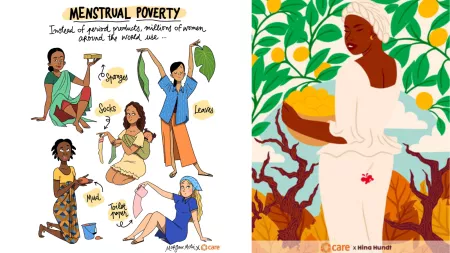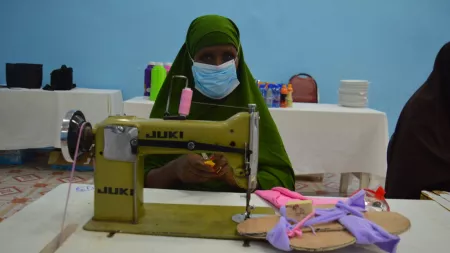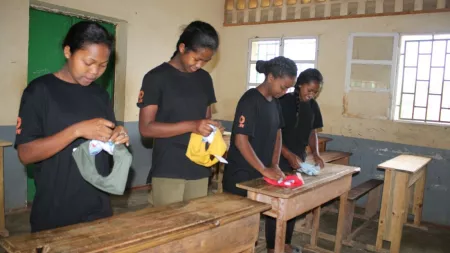The taboo of menstruation is one of the most widespread forms of sexist discrimination in the world: shame, girls being taken out of school, social exclusion, economic poverty.
What are the causes and what are the solutions? Read below.
We used to think that if a woman touched a tree during her period, its fruit would fall off.Rafik, CARE’s program participant in Uganda.
Why are women's lives endangered by the taboo of menstruation?
Newspaper, old cloth, pieces of mattress used as tampons, or even dried cow dung or mud. Hundreds of millions of women living in poverty around the world have no access to menstrual protection, and instead use alternatives that cause severe health risks.
In addition to this menstrual precariousness, certain false beliefs about menstruation prevent them from living their periods with dignity. In Afghanistan, for example, washing during menstruation is considered a risk to fertility.

What can be done?
Distribute and support the production of sanitary pads and safe alternatives. CARE and our partners work across multiple countries providing training in the manufacture of reusable, economical and healthy sanitary towels for communities.
The production not only supports women and girls’ health and dignity but also provides an extra income to professional seamstresses. For Berthe, a 51-year-old seamstress who used to experience menstruation as a handicap, it's a victory for all the women in her community in Madagascar.
- Help build and and maintain adapted sanitation infrastructures. This means ensuring women and girls have access to clean, adapted and safe toilets.
- Support for health centers and training of healthcare personnel to guarantee access to healthcare for women and girls.

How does the taboo of menstruation cause sexist discrimination?
In many countries, girls and women are considered impure when they menstruate. They are socially excluded or even exiled from their homes. Girls stop going to school at puberty because of the shame they feel and the lack of appropriate sanitary infrastructure.

How can we respond?
- Raise public awareness of menstrual health and good menstrual hygiene practices. This is of course aimed at girls and women, who are the first to be affected. But it is crucial that campaigns also target men and boys, who play a major role in putting an end to sexist discrimination.
- Support local feminist policies. Beyond individuals, we also need a commitment from governments to policies that respect women's rights, including menstrual health.
Before, boys used to make fun of girls when they stained their clothes. I used to laugh too. Some girls stopped coming to school because of it. Now I understand that menstruation is natural, so I don't bother them anymore.Courage, 12-year-old boy from Zimbabwe.
Menstruation is not just an intimate or health issue, it's also a social and political issue for gender equality. We must act against the taboo of menstruation to uphold women's and girls’ rights to health, education, work, and dignity.
